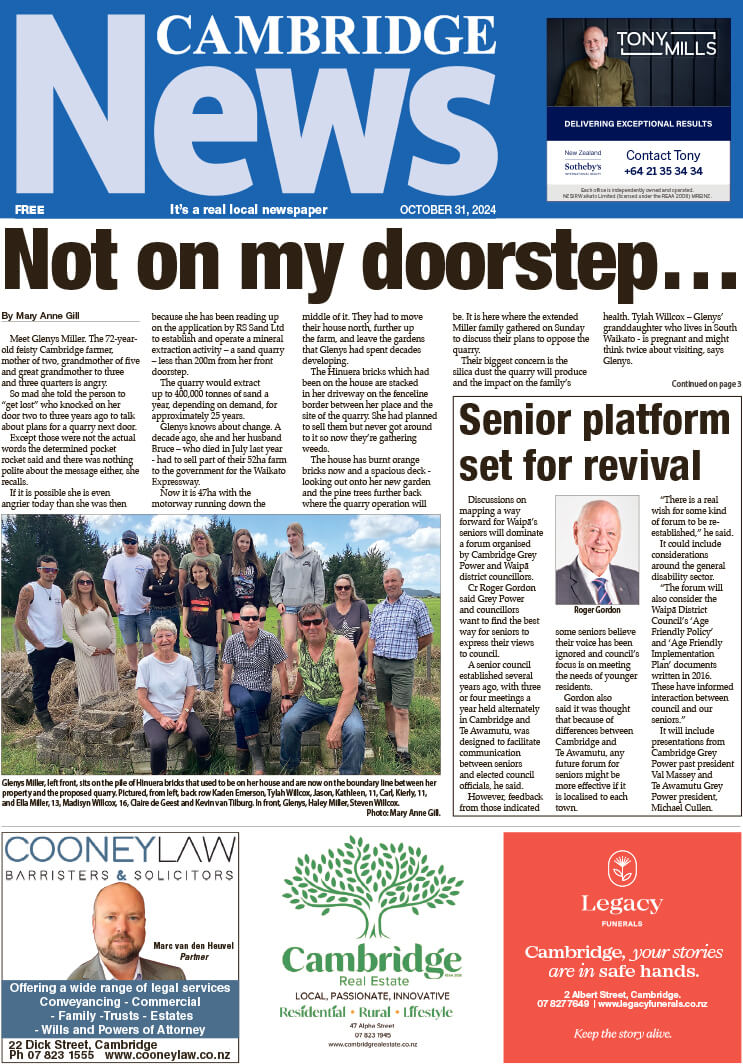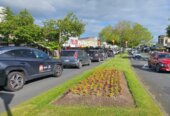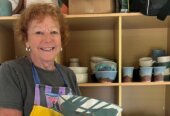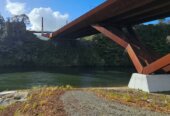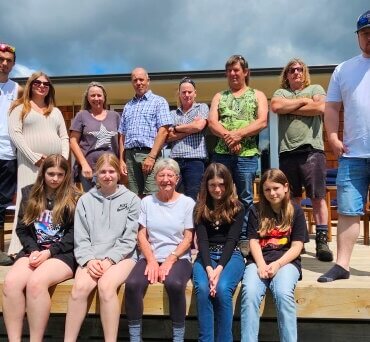
Quarry opponents, from left back: Kaden Emerson, Tylah Willcox, Claire de Geest, Kevin van Tilburg, Haley Miller, Steven Willcox, Carl and Jason Miller. Front: Ella Miller, 13, Madisyn, 16, Glenys, Kathleen, 11, Kierly, 11, Miller. Photo: Mary Anne Gill.
Meet Glenys Miller. The 72-year-old feisty Cambridge farmer, mother of two, grandmother of five and great grandmother to three and three quarters is angry.
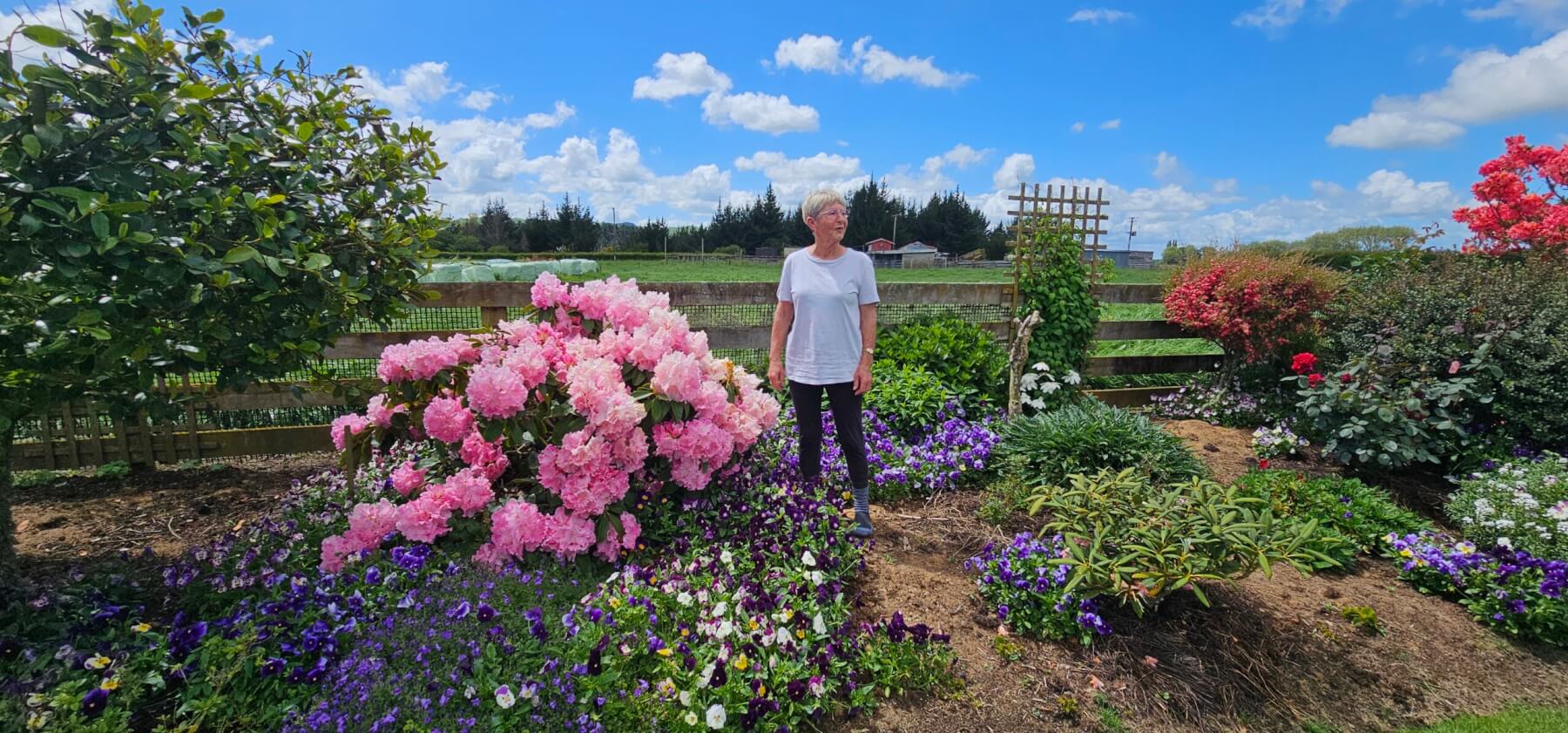
Glenys Miller in the garden she reestablished at her Newcombe Rd property. Behind her, where the pine trees are, is the planned quarry site. Photo: Mary Anne Gill.
So mad she told the person to “get lost” who knocked on her door two to three years ago to talk about plans for a quarry next door.
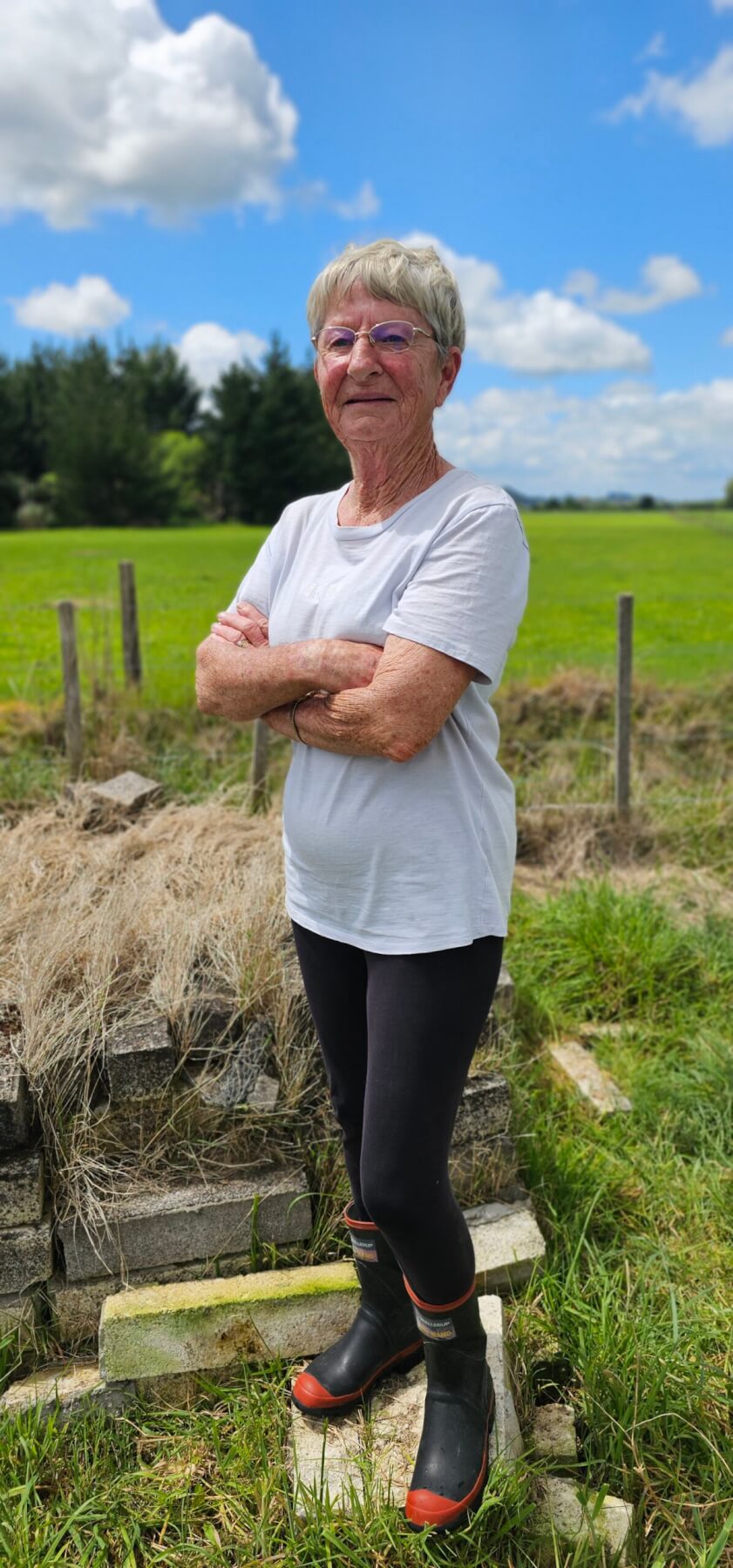
Feisty Glenys Miller is fighting to stop a quarry next door. Photo: Mary Anne Gill.
Except those were not the actual words the determined pocket rocket said and there was nothing polite about the message either, she recalls.
If it is possible she is even angrier today than she was then because she has been reading up on the application by RS Sand Ltd to establish and operate a mineral extraction activity – a sand quarry – less than 200m from her front doorstep.
The quarry would extract up to 400,000 tonnes of sand a year, depending on demand, for approximately 25 years.
Glenys knows about change. A decade ago, she and her husband Bruce – who died in July last year – had to sell part of their 52ha farm to the government for the Waikato Expressway.
Now it is 47ha with the motorway running down the middle of it. They had to move their house north, further up the farm, and leave the gardens that Glenys had spent decades developing.
The Hinuera bricks which had been on the house are stacked in her driveway on the fenceline border between her place and the site of the quarry. She had planned to sell them but never got around to it so now they’re gathering weeds.
The house has burnt orange bricks now and a spacious deck – looking out onto her new garden and the pine trees further back where the quarry operation will be. It is here where the extended Miller family gathered on Sunday to discuss their plans to oppose the quarry.
Their biggest concern is the silica dust the quarry will produce and the impact on the family’s health. Tylah Willcox – Glenys’ granddaughter who lives in South Waikato – is pregnant and might think twice about visiting, says Glenys.
Make your submission, yes or no?
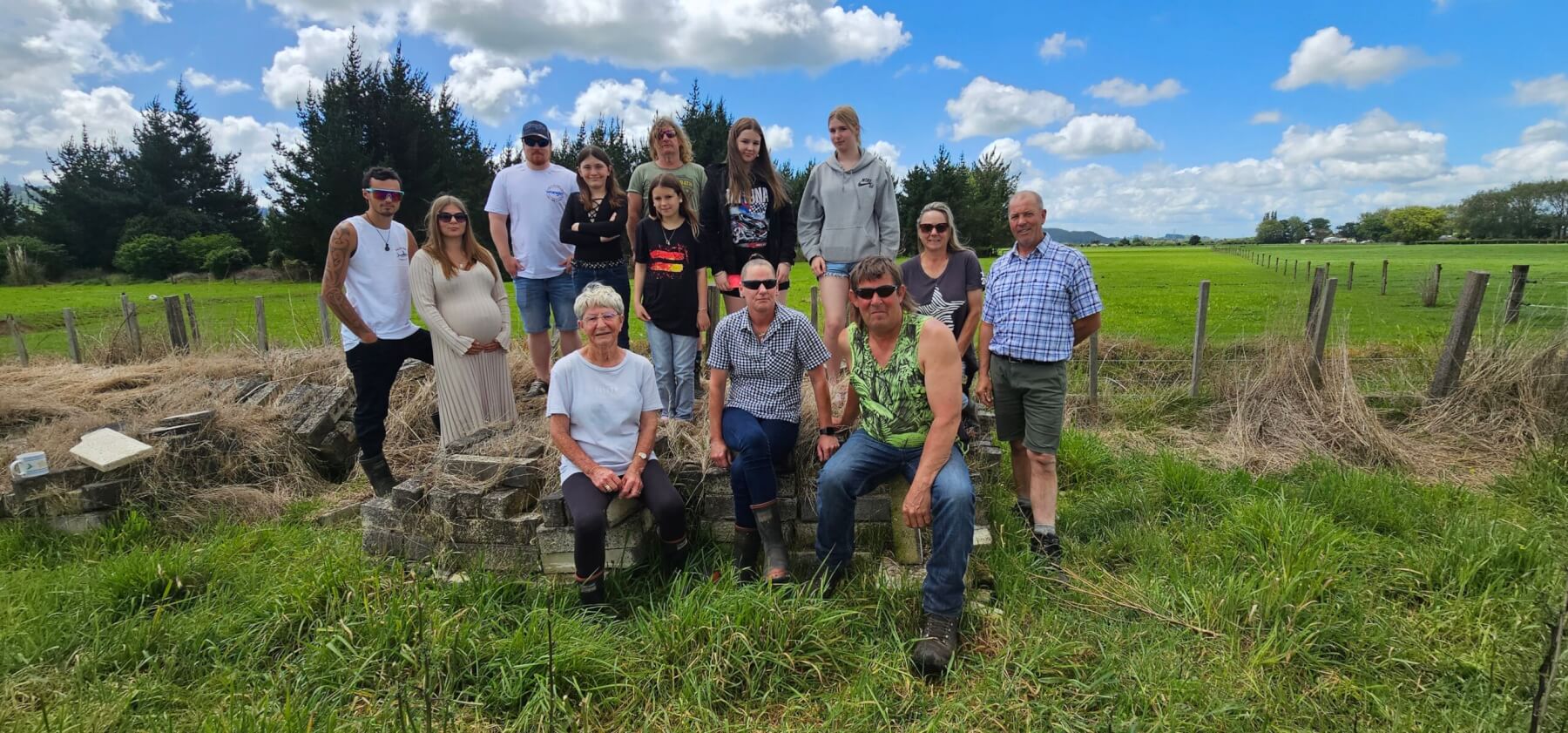
Glenys Miller, left front, sits on the pile of Hinuera bricks that used to be on her house and are now on the boundary line between her property and the proposed quarry. Pictured, from left, back: Kaden Emerson, Tylah Willcox, Jason, Kathleen, 11, Carl, Kierly, 11, and Ella Miller, 13, Madisyn Willcox, 16, Claire de Geest and Kevin van Tilburg. In front, Glenys, Haley Miller, Steven Willcox. Photo: Mary Anne Gill.
Son Carl Miller, who knows every inch of the farm and will inherit it one day along with his sister Haley, worries about the Karāpiro Stream which runs alongside their and the new quarry operation’s boundaries. It is full of eels, kākahi freshwater mussels, carp and trout.
Will there be enough spring water left for the farm after the quarry has taken what it needs? he asks.
“This project would consume an astronomical amount of water daily, threatening the volume and quality of my natural spring that supplies water to my livestock and my two households,” says Glenys in her submission on the quarry.
The noise is another thing. When the quarry operators took samples for the application, the noise was deafening, she says.
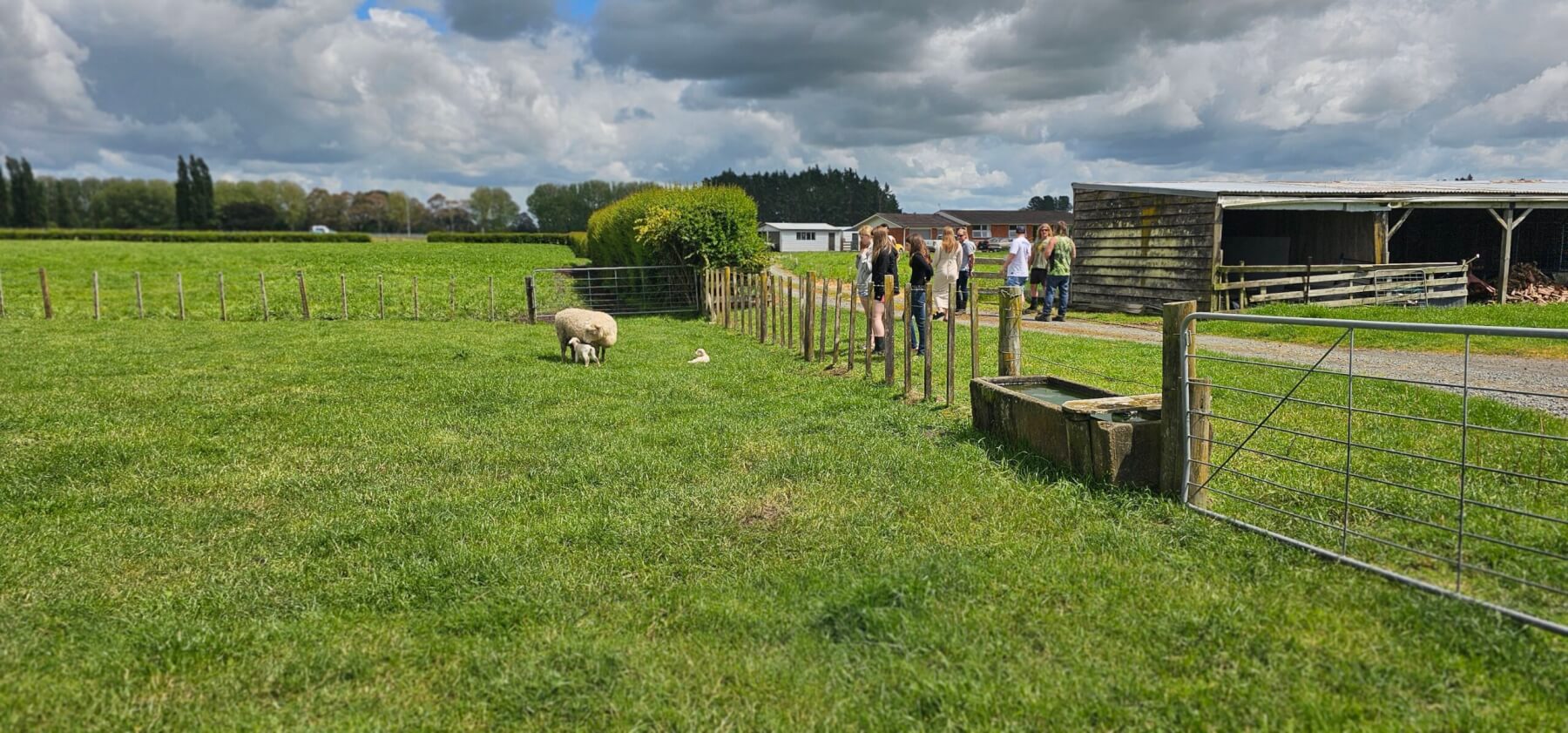
Newborn twin lambs were born hours before the extended Miller family met to discuss the quarry application. Behind is the house with the new burnt orange bricks. Photo: Mary Anne Gill.
And there are the trucks that will trundle up and down Newcombe Road past her driveway and then through the town.
“I’ve heard there will be about 400 trucks a day,” she says although the traffic assessment figures presented by RS Sands suggests up to 200 trucks per day on peak days and 78 on other more typical days.
“I don’t think people know what that’s going to do to Cambridge and the silica dust will blow that way too and none of the money from the quarry is going to go into the town.”
Her husband’s ashes and those of his parents Peter and Cassie Miller were scattered on the farm.
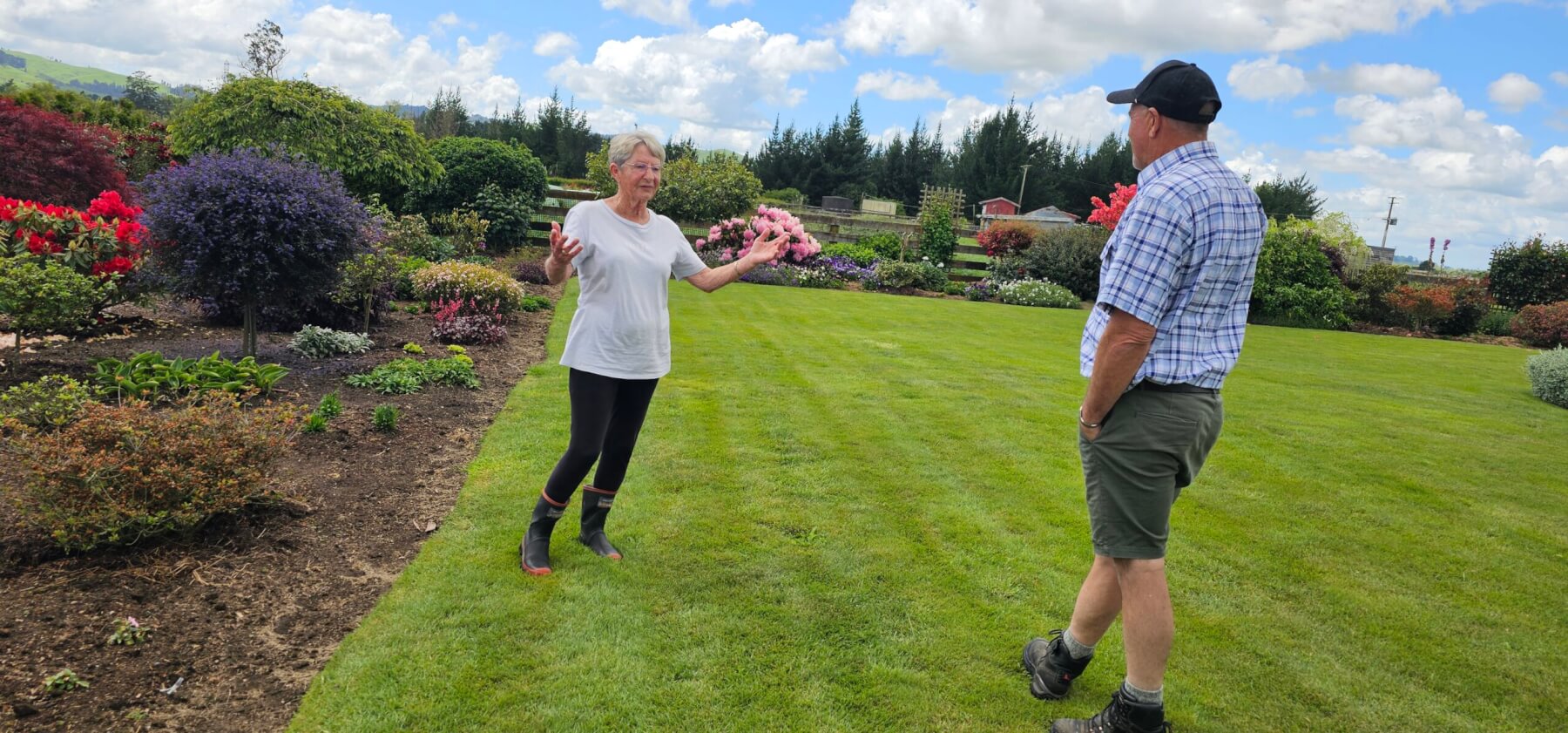
Glenys Miller with Kevin van Tilburg in her garden.
Tenants Claire de Geest and Kevin van Tilburg, who live in the old farmstead, will be even closer to the quarry and fear their idyllic rural view towards Whitehall, Te Miro and Pukemako (Sanitorium) Hill will be ruined by industrial equipment.
This is a group of people not used to taking on authority and who are confused about the role of Waipā District Council and Waikato Regional Council who will run a joint hearing to decide whether the quarry can proceed.
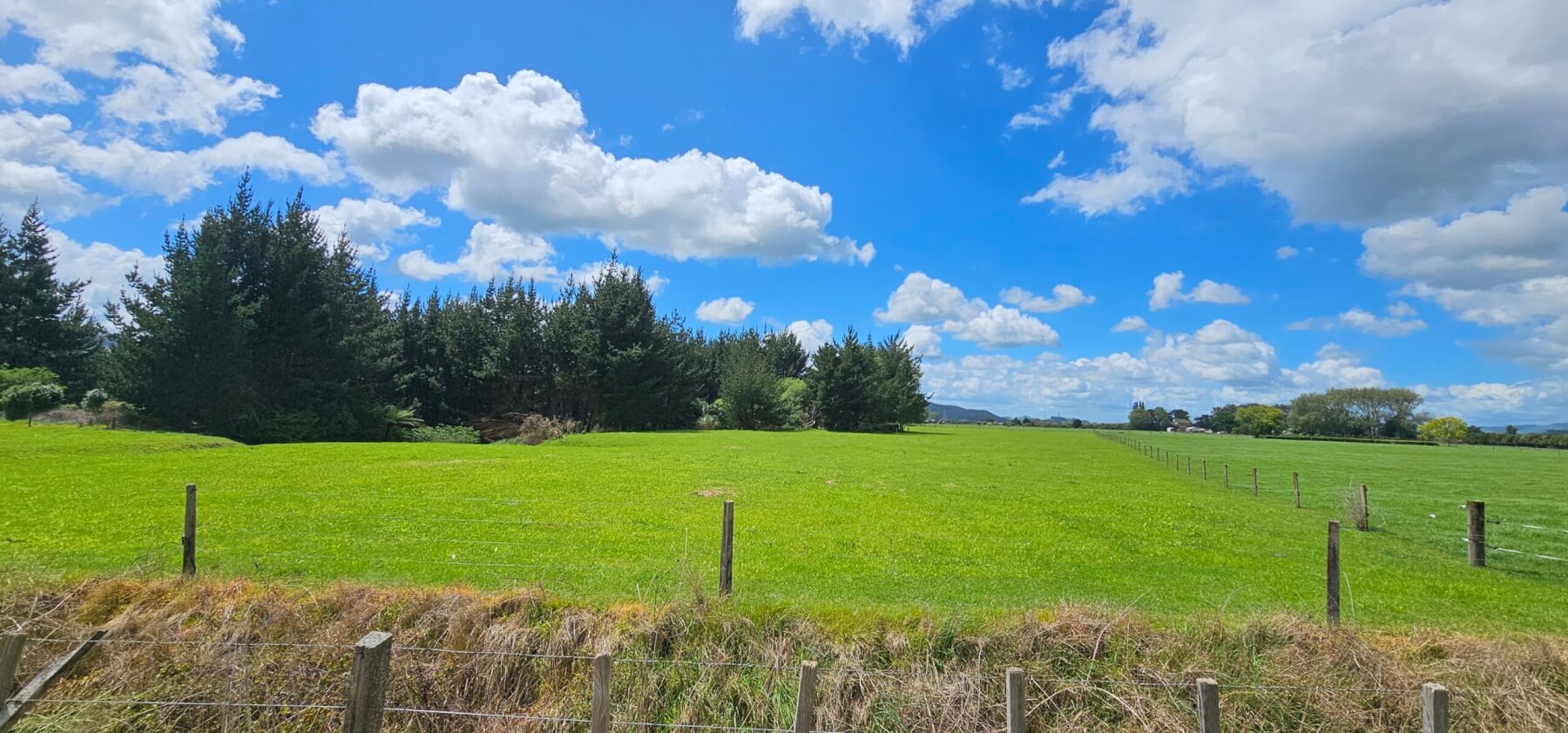
Lost view: Claire de Geest and Kevin van Tilburg’s farm cottage view will be replaced by quarry equipment and dust. Photo: Mary Anne Gill.
Even the thought of putting in a submission, knowing what to say and how to say it when there will be noise, soil, water and air experts giving evidence, has them worried but not daunted.
Even the thought of putting in a submission, knowing what to say and how to say it when there will be noise, soil, water and air experts giving evidence, has them worried but not daunted.
Glenys put in a 122-word submission finishing with “Thank you for your consideration,” which she insists the applicant never showed her.
Carl is going to put one in too and he says he will ask to be heard at the hearing. “I’ll tell them,” he says.
Glenys has put her faith in the independent commissioners who will hear the application on behalf of the two councils.
Submissions close on Monday November 4 and can be made at the council offices or online.
- This story was updated online from the newspaper version.
See: Views on a quarry
Make your submission, yes or no?
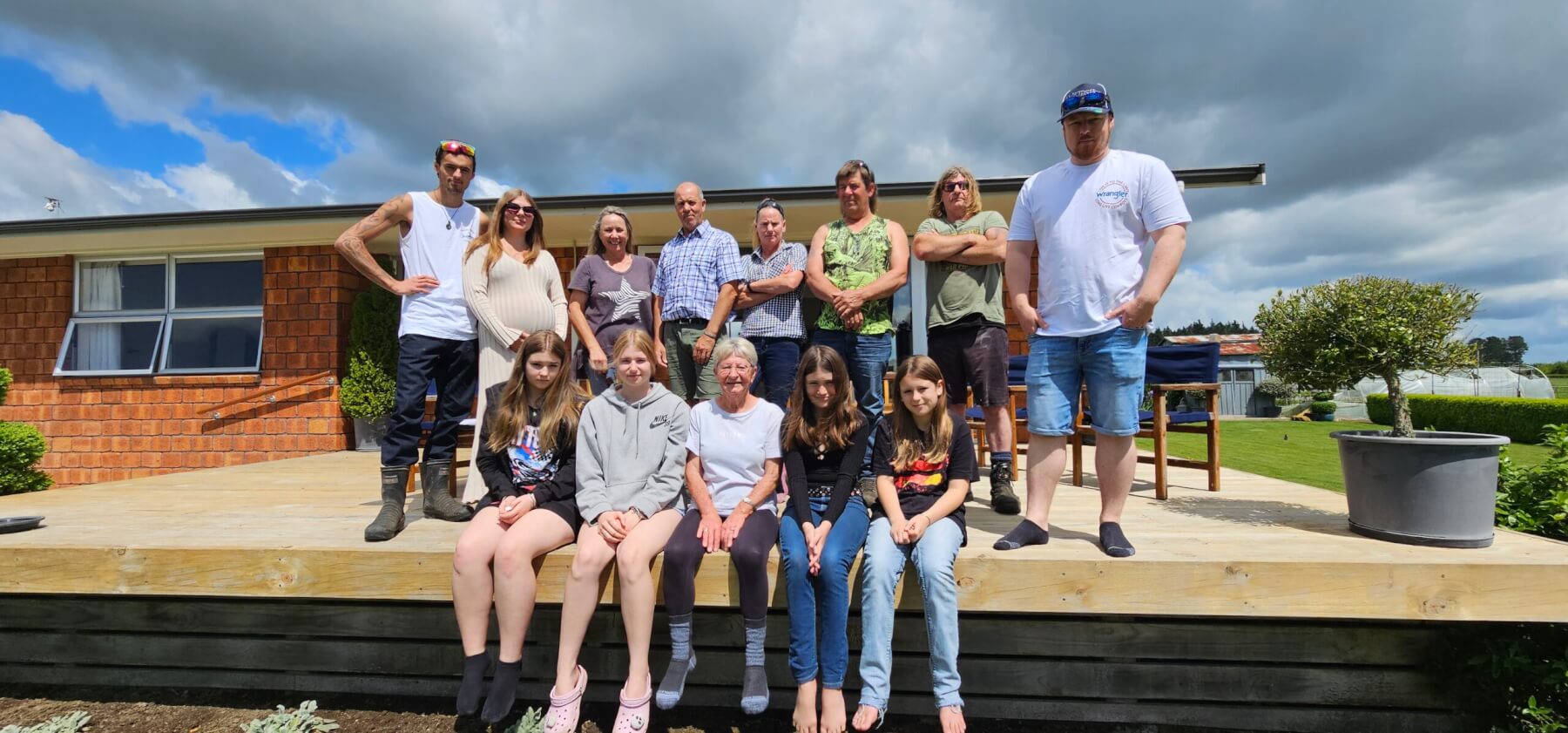
Quarry opponents, from left back: Kaden Emerson, Tylah Willcox, Claire de Geest, Kevin van Tilburg, Haley Miller, Steven Willcox, Carl and Jason Miller. Front: Ella Miller, 13, Madisyn, 16, Glenys, Kathleen, 11, Kierly, 11, Miller. Photo: Mary Anne Gill.



